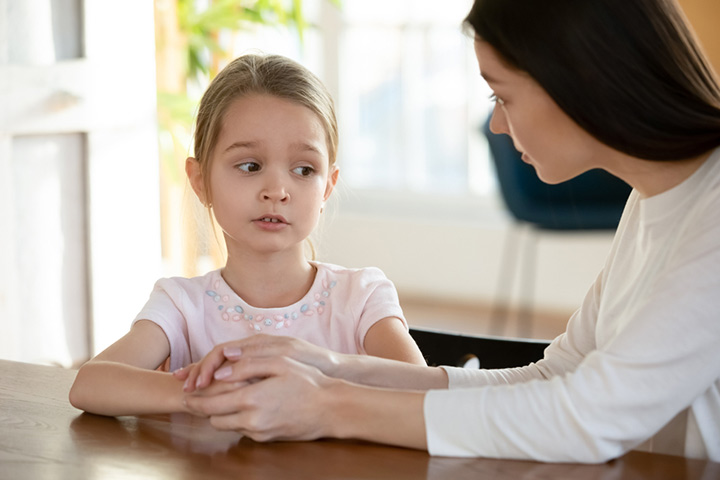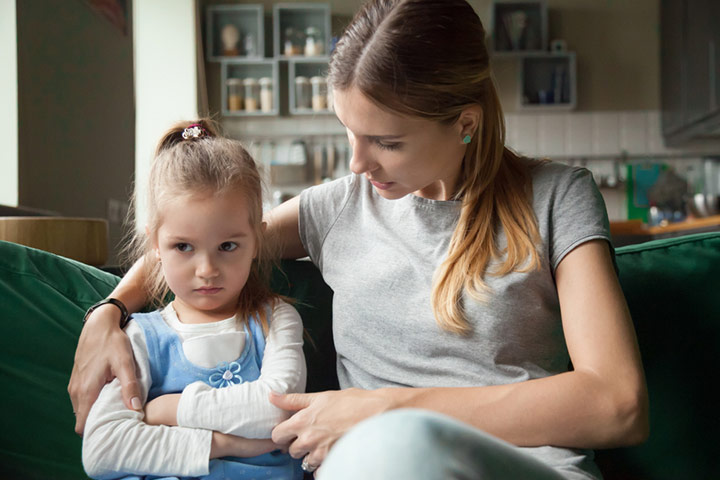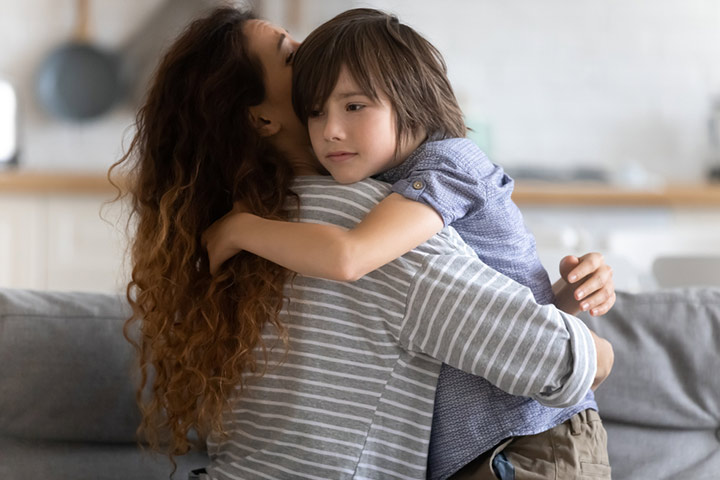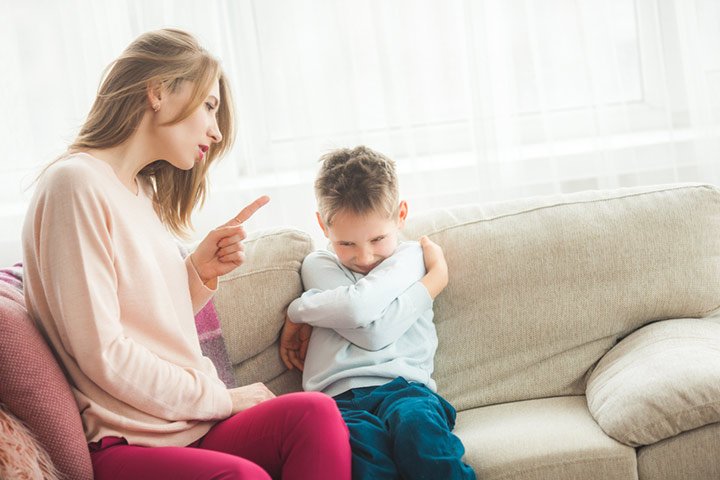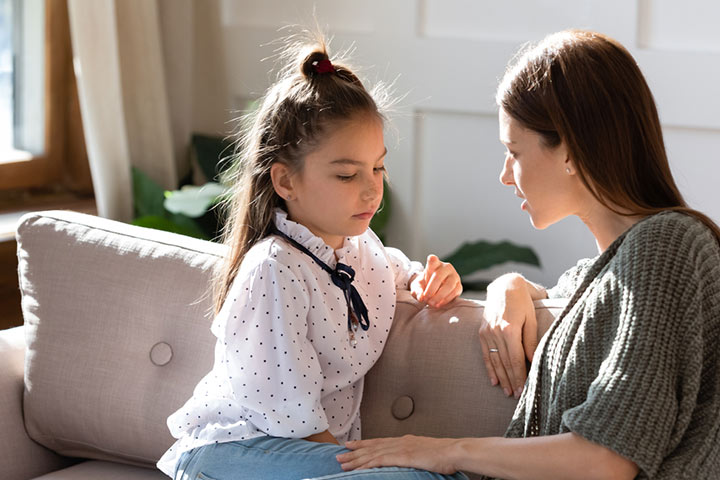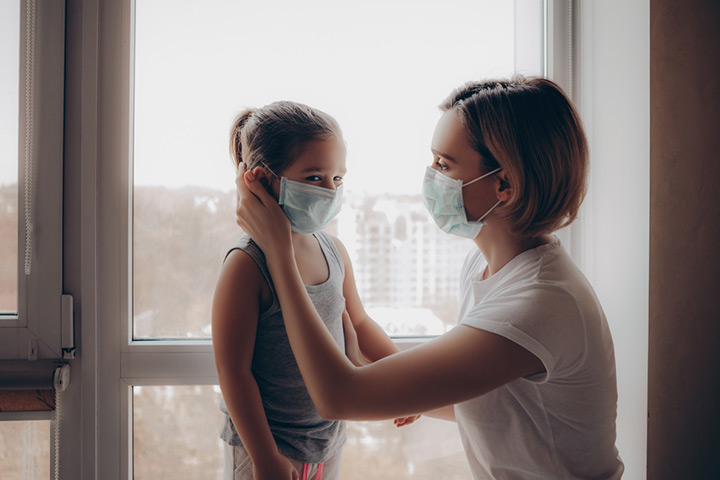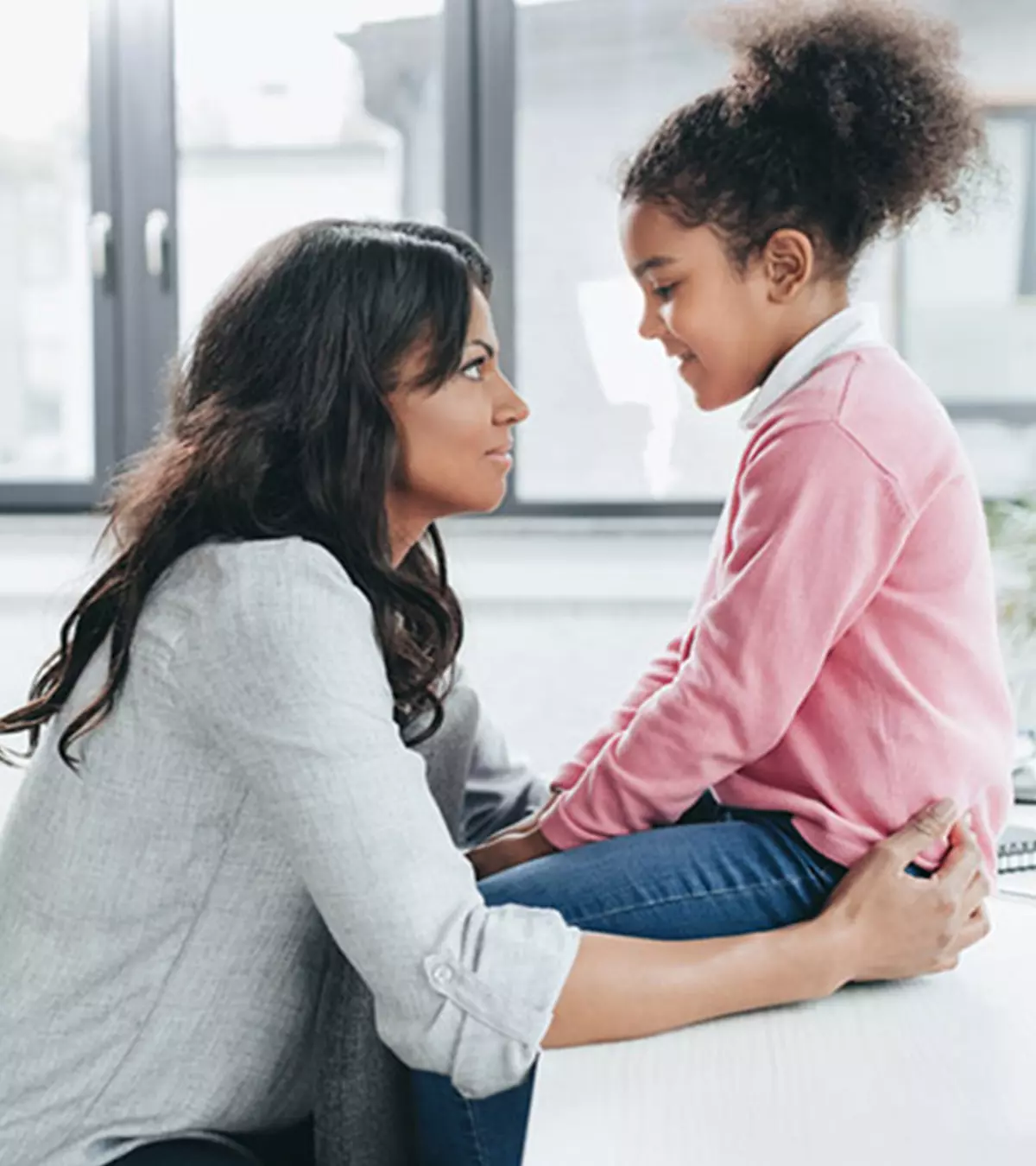
Image: Shutterstock
We’re all affected by the pandemic in some way or the other. Our work lives have changed, and our social lives have come to a standstill. Even buying groceries isn’t the same anymore. Children, too, are at the receiving end of all these changes. They’ve been forced to make the switch to online classes, and it’s been a while since they went out to play with their friends. You’ll never know what your child is going through unless you initiate conversations. The pandemic is a reality, and it is important to make your child understand that. Also, remind them that, although this is happening and it is unpleasant, things will be okay. Here’s how you can talk to your child about COVID-19:
1. Answer Their Questions
Image: Shutterstock
Kids are curious. They have so many questions but very few answers. Don’t shun your children when they ask you questions they do not understand. Ensure that you encourage them to ask questions, no matter how silly or serious they may be. It can be something as simple as ‘When can we go to the mall again?’, or something as serious as ‘Can this virus kill me as well?’. Reassure them with fact-based answers.
2. Be Honest With Them
Image: Shutterstock
If you don’t have answers to some of their concerns, be honest with them. It’s okay to tell them that you aren’t sure about it yourself. It might be tempting to give them answers that you do not believe yourself, but don’t do that. Instead, tell them that you do not know, but things will be okay soon. In fact, by exposing them to a small amount of uncertainty, you may help build their resilience as well.
3. Give Appropriate Information
Image: Shutterstock
Don’t load your child with too much information. Only tell them what they need to know. If your child asks you about something, try to stick only to that topic. By giving them too much information, you can overwhelm them. Provide them with information keeping in mind their age and developmental status. Keep a tab on their screen time as there is a lot of misinformation making the rounds.
4. Show Up For Your Child
Image: Shutterstock
It doesn’t matter if you cannot be the one to answer every question or concern that comes your way, but being there for your child is more important. If your child is upset, a hug might help. Try to distract your child with a fun activity. They need a break too.
5. Keep A Tab On Yourself
Image: Shutterstock
It would help if you were calm as well. It’s understandable if you are overwhelmed and everything seems to stress you out. However, keep in mind that your kids pick up cues from your behavior.
6. Be there for your child
Image: Shutterstock
Make yourself available. Most of us are confined to our homes, thanks to the pandemic. As a parent, the chances are that you are working from home. However, despite being at home at all times, we tend to get carried away with work and forget about our personal lives. The line between work and home has blurred, so you need to make sure that you are making yourself available for your child.
7. Avoid Blaming In Your Conversations
Image: Shutterstock
When you turn on news channels or listen in on conversations between two parties, you will see a lot of blame games going on. Often, we see coverage of sensational news topics that hold little to no truth to them. It instills fear and a sense of negativity. When your child comes across such news, provide a context. Tell them that blaming people will not change things at this time. Instead, we can work towards taking care of ourselves and staying safe, thereby protecting others around us.
8. Educate Them
Image: Shutterstock
Make them aware of the importance of following safety guidelines. Tell them about the virus and how it can spread. Remind them to wash their hands frequently and show them how to use tissue paper. Teach them the importance of hand sanitizers and face masks. Show them how to cough into their elbows.
The pandemic might seem like a never-ending nightmare. However, our frontline workers are finding a way out for us. The vaccine is one such ray of hope. Tell your child about the vaccine as well. It is essential to let them know that despite all the bad news, good news exists as well. Have you had this talk with your child recently? Tell us how that went in the comments below!

